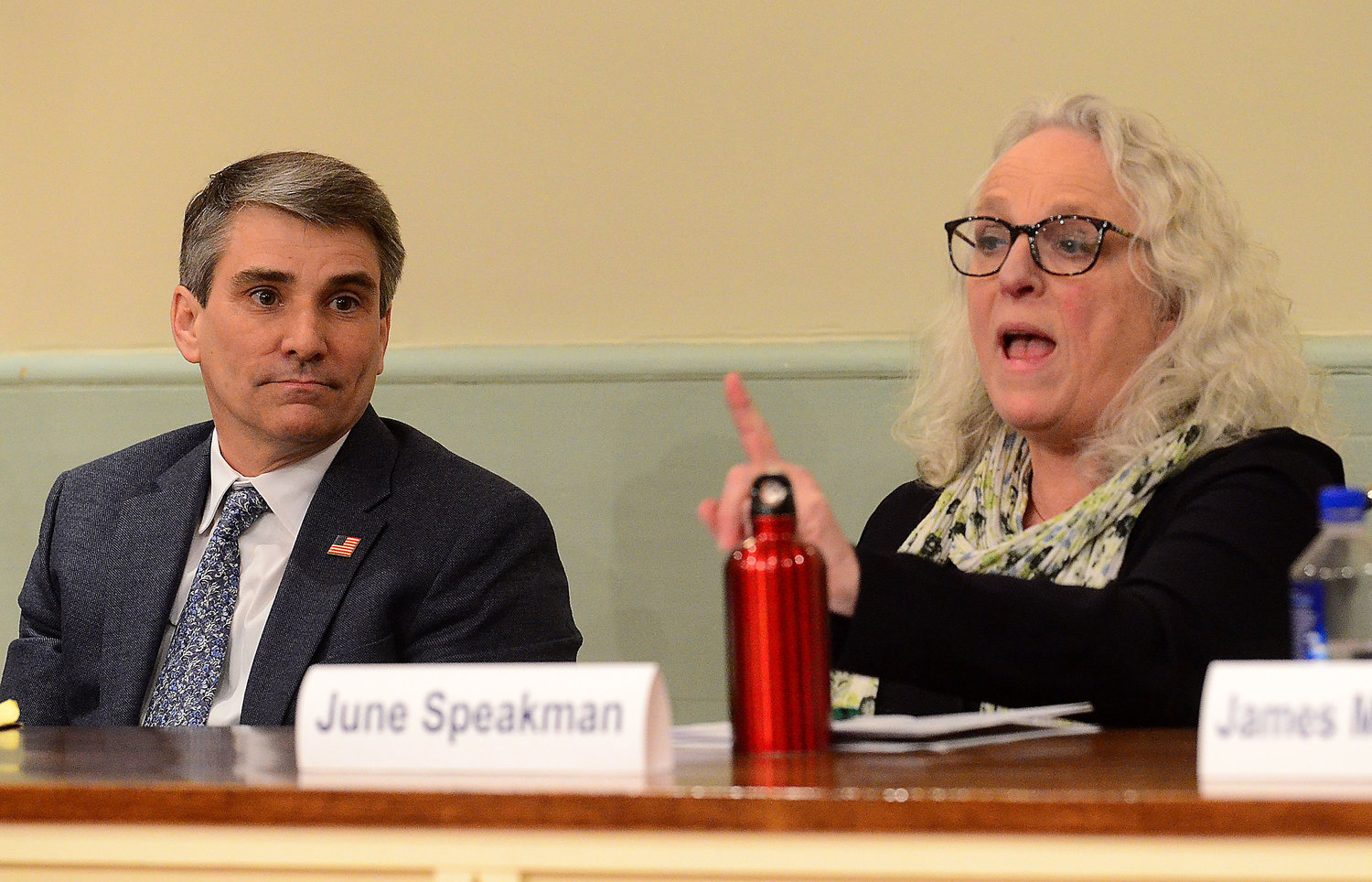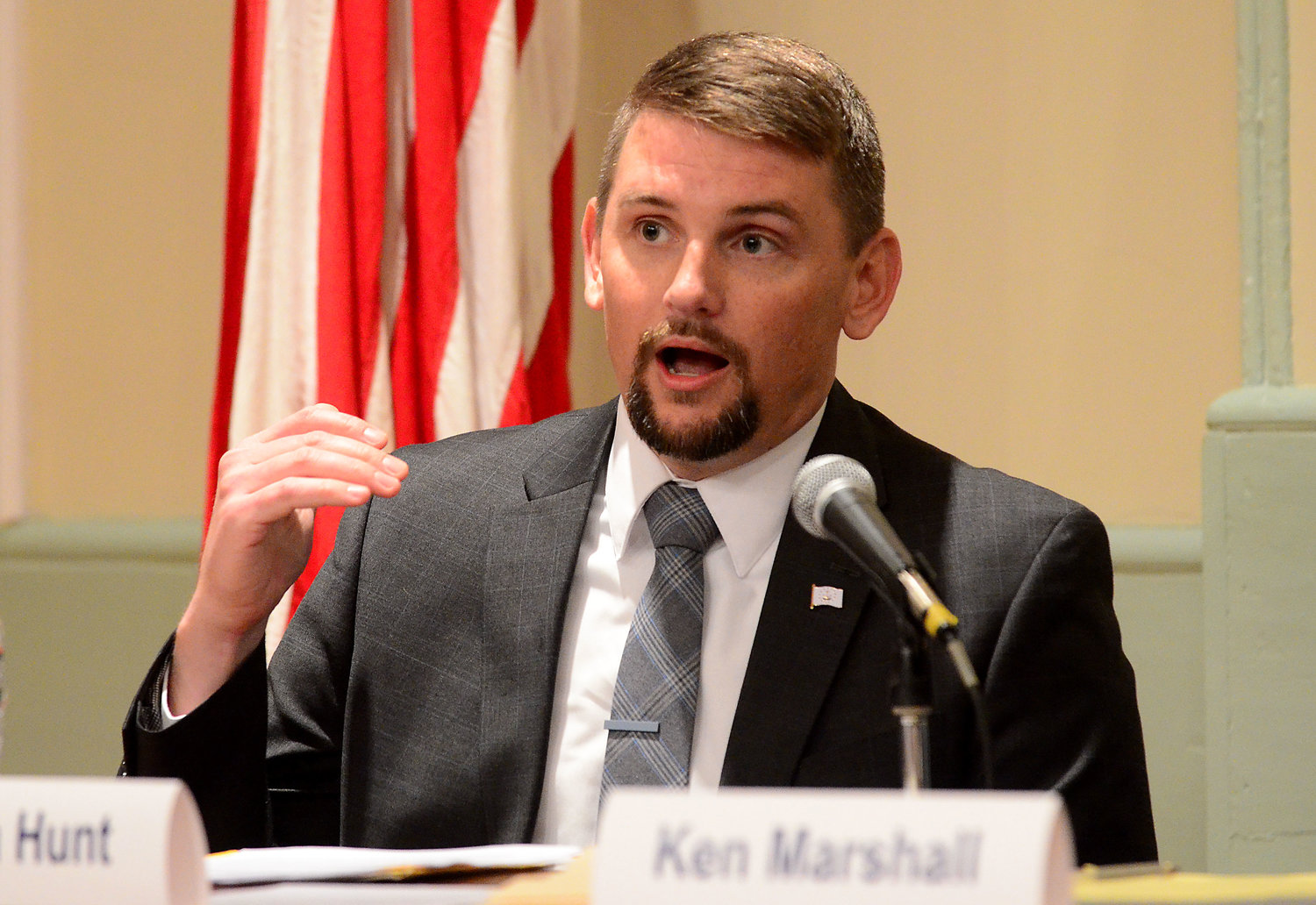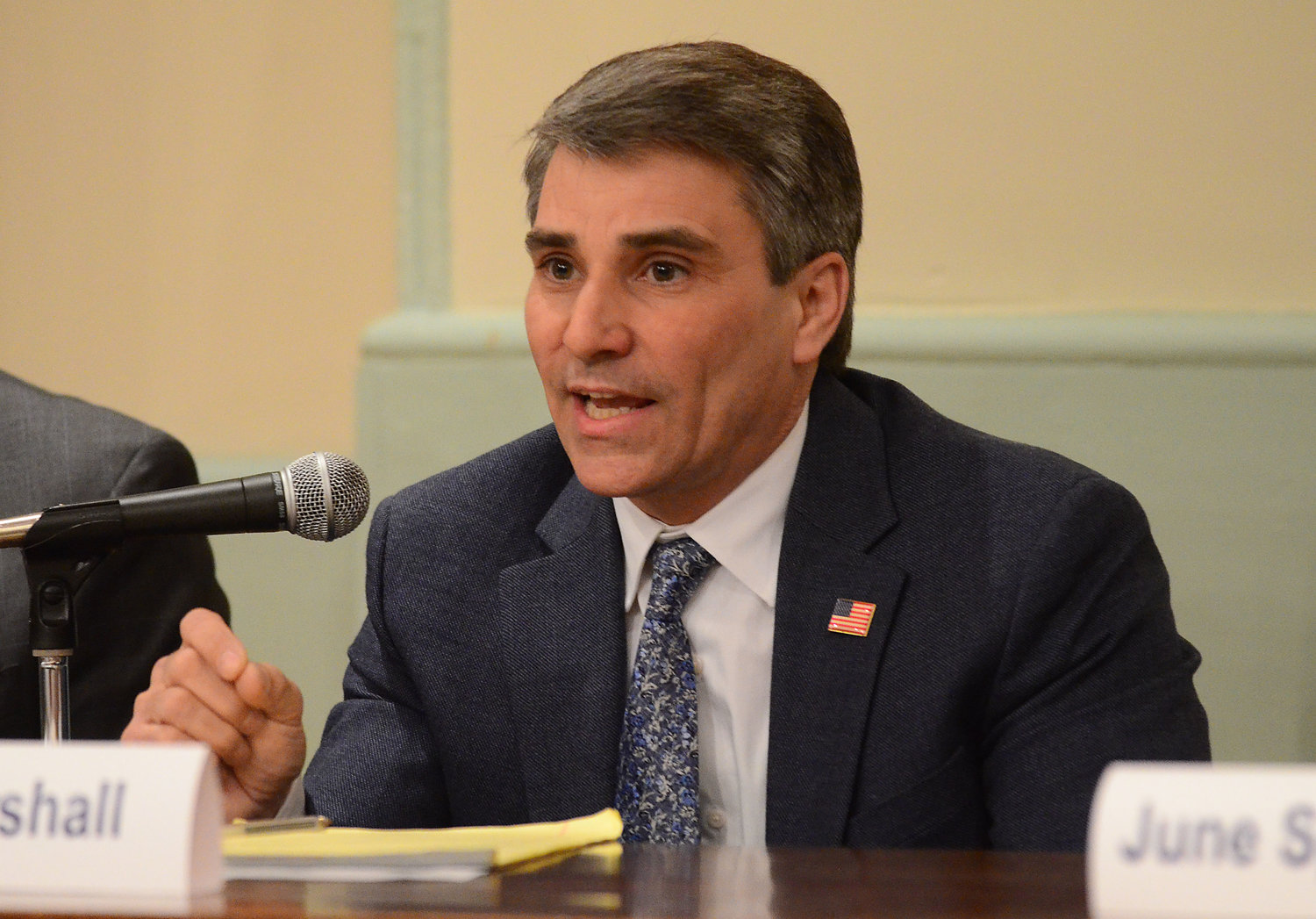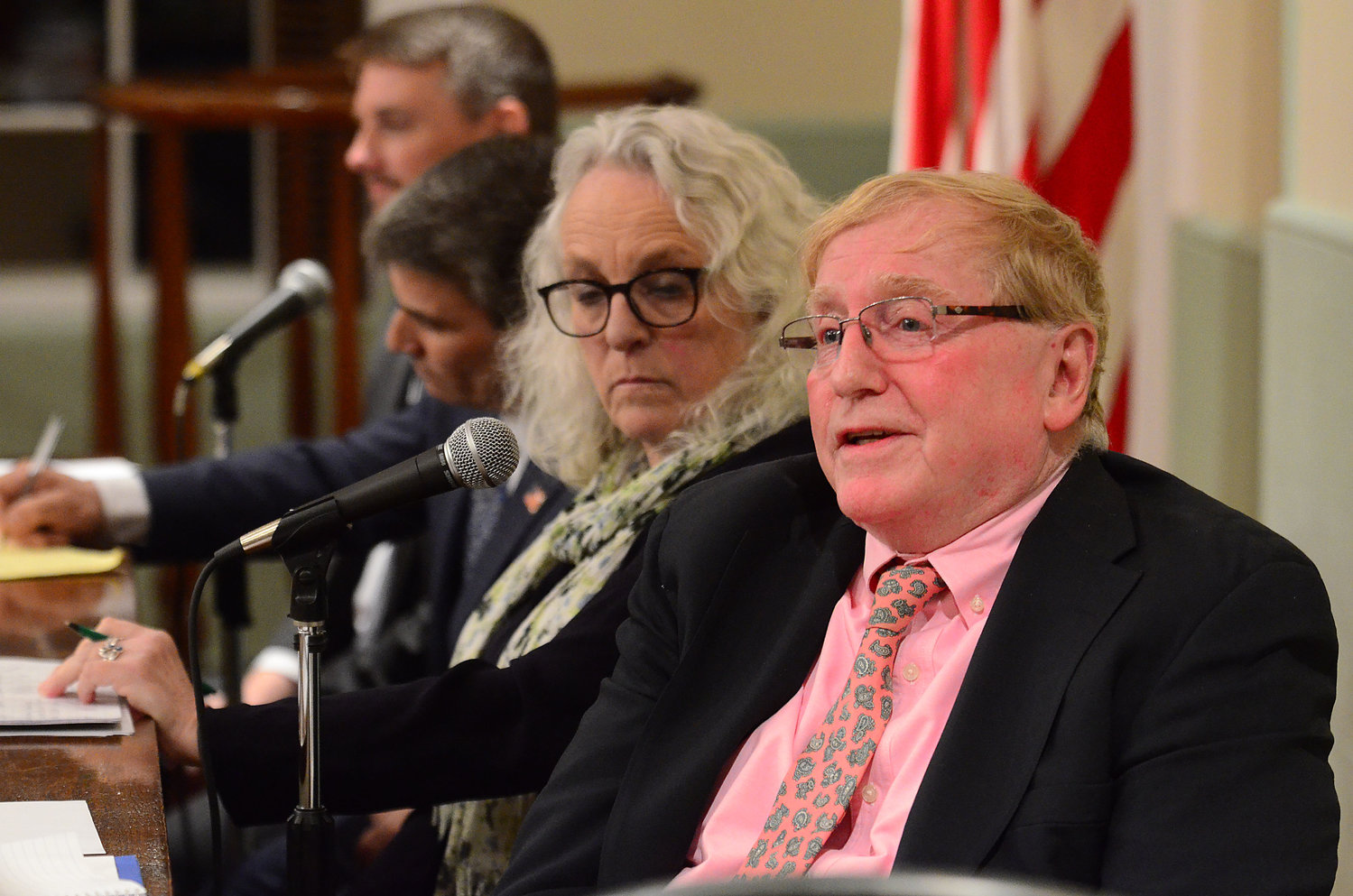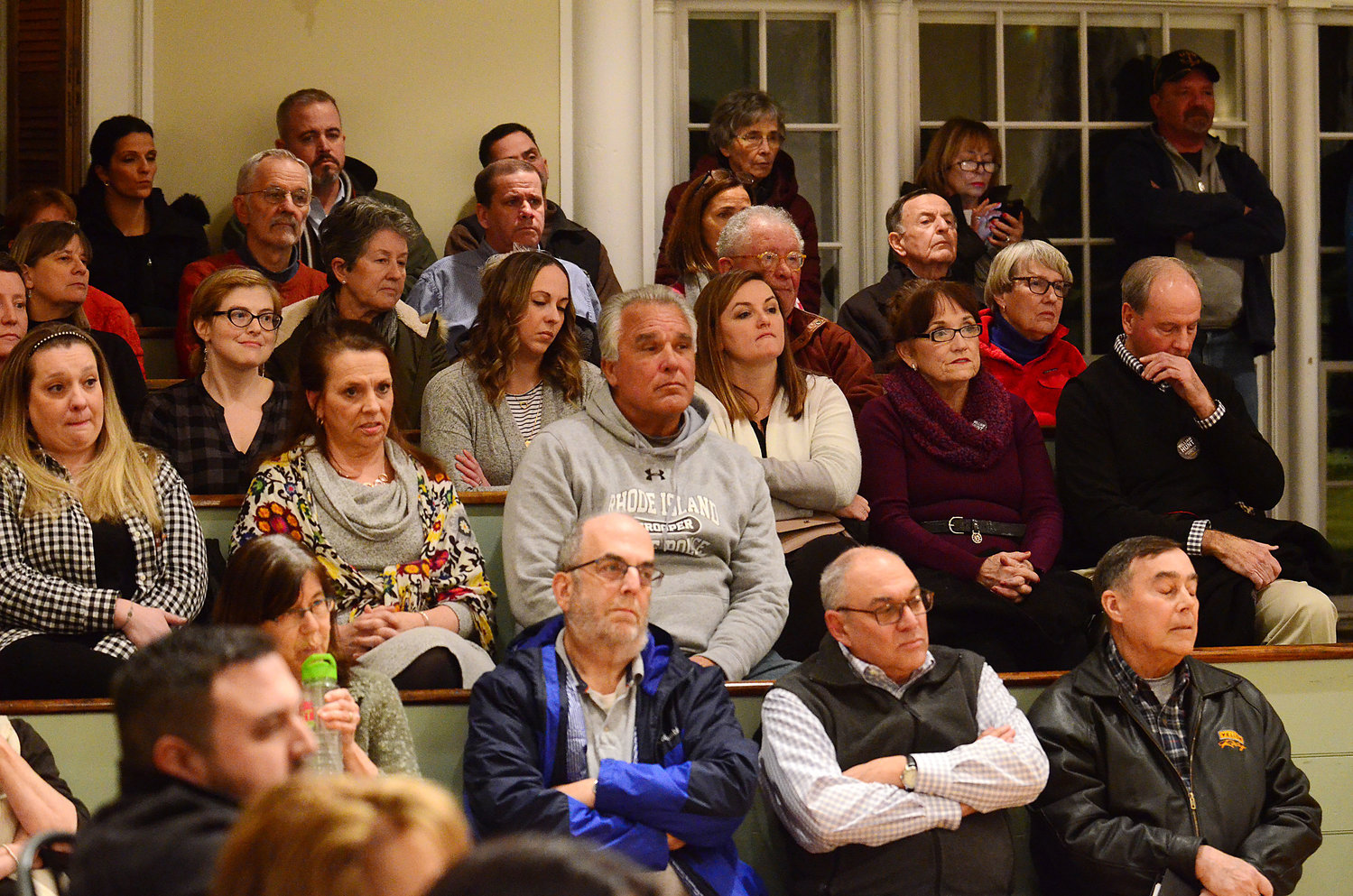- TUESDAY, APRIL 23, 2024
District 68 candidates spar as special election looms
With a special election just a week away, the race to replace Laufton Ascencao for the House of Representatives District 68 seat only continued to heat up during a candidate forum held at the Bristol …
This item is available in full to subscribers.
Please log in to continue |
Register to post eventsIf you'd like to post an event to our calendar, you can create a free account by clicking here. Note that free accounts do not have access to our subscriber-only content. |
Day pass subscribers
Are you a day pass subscriber who needs to log in? Click here to continue.
District 68 candidates spar as special election looms
With a special election just a week away, the race to replace Laufton Ascencao for the House of Representatives District 68 seat only continued to heat up during a candidate forum held at the Bristol County Statehouse on Monday, Feb. 25.
Throughout the hour-long debate, issues were hotly contested and personal attacks were pointedly made as Libertarian William Hunt, Democrat June Speakman, Independent James McCanna III — all from Warren — and Independent Kenneth Marshall of Bristol vied to win over the public’s support at the polls next Tuesday, March 5.
On achieving transparency with campaign finance laws
Forgoing opening statements, the candidates instead went straight into the very reason they were sitting before residents that evening — campaign finance law violations. All four had varying views on what should be done.
Mr. Hunt: “I think the best thing we can do is reduce the size of the government, take the power away from these legislatures to be able to push specific agendas, and give the power back to the people and make the elections more accountable, by having more people enter the race to make it easier for more people to run for office.”
Mr. Marshall: “Our Board of Elections is not funded adequately enough in order to … be able to match expenditures with campaign donations.”
Ms. Speakman: “I think the law is where it needs to be and the Board of Elections does a great job; the problem is folks need to comply with the law.”
Mr. McCanna: “I believe that one of the systemic problems in politics and government is the fact that there is too much emphasis on outside monies.”
On campaign funding sources
Along a similar vein, candidates were asked the sources of their own campaign funds. Linked to Mr. Ascencao’s mistakes by critics, Ms. Speakman came under fire from her opponents about the tactics used to raise $34,000 for her campaign. “I’ve always believed that if you have to buy a seat, you don’t deserve a seat,” Mr. Marshall said.
Ms. Speakman: Though her contributions are largely comprised from within the district, several donations have also come from other parts of the state and country. Firing back at Mr. Marshall’s accusations, she added, “I am an independent woman with her own views, and people support me because they agree with those views, and the suggestion that I am somehow buying this election is ludicrous.”
Mr. McCanna: Saying $25 contributions solely from his constituents are his only funding source, Mr. McCanna boasted his ability to be free from the chains of outside influences. “I am truly the independent man.”
Mr. Hunt: Contributing to his $5,000 campaign, Mr. Hunt said, are like-minded libertarians from across the country. “We’re all trying to go out here and raise money and get people elected to basically leave everyone alone, to get the government out of lives, out of our wallets and out of our bedrooms.”
Mr. Marshall: The Independent claimed donations from applicable political action groups as well as money from within the district that was left over from the previous election. In response to Ms. Speakman’s rebuttal, he replied, “I didn’t say that you were buying the election, I said that someone else was buying it for you.”
On supporting the Reproductive Health Care Act
One one of the more divisive topics of the night, Ms. Speakman and Mr. McCanna supported passage of the act, while Mr. Hunt and Mr. Marshall, for varying reasons, found themselves on the opposing side. After asking whether society should draw a line between labeling someone who has had multiple abortions as a women’s reproductive rights issue or “mass suicide,” Mr. Marshall was met with backlash from both the public and Ms. Speakman. “That kind of language is completely inappropriate in a public policy debate,” she said.
Mr. McCanna: “My Irish Catholic mother in heaven won’t want to hear this, but the reality of it is, the decisions that we make … we’re going to be held accountable by a higher being, and that’s not necessarily going to be the Congress of this country or the General Assembly of the United States.”
Mr. Hunt: “I would vote no on legislation that would be for expanding abortion rights, and I would also vote no on legislation that would restrict abortion rights — I think it’s something that the state government needs to get out of.”
Ms. Speakman: “That’s something that all women in Rhode Island deserve. They should not live in fear that their right to control their reproductive health will be taken away.”
Mr. Marshall: After facing criticism from audience members and his colleague, Mr. Marshall double-backed on his stance on the issue. “I agree … government should not be involved.”
On tending to the state’s ailing business climate
The candidates discovered plenty of disagreement on this issue. Mr. McCanna questioned if Mr. Hunt’s career exposed him to outside lobbyist influence, while Mr. Marshall challenged Ms. Speakman’s stance on affordable housing.
Mr. Hunt: Employed in the commercial insurance industry — and rejecting Mr. McCanna’s claims about lobbyist influence — Mr. Hunt’s take on the issues he sees each and every day with his clients involves the government’s interference in small business. “What we need to do is lower the corporate tax burden and reduce the number of business regulations that we have in the state.”
Mr. McCanna: He felt his previous experience as a small business owner puts him in a favorable position to be able to enact the changes needed at the Statehouse. “I will do everything I possibly can to help that situation, having been on the positive and the negative side of the issue.”
Ms. Speakman: Along with the need for better transportation and affordable housing, Ms. Speakman also spoke to the need for an investment in education. “One of the things that businesses are looking for are human capital; an educated workforce that can transition into the workplace smoothly.”
Mr. Marshall: While he acknowledged some of the efforts already underway, such as opening a vocational school in the regional area and enacting an economic review process, Mr. Marshall went on the offensive at Ms. Speakman’s mention of being a proponent on affordable housing, claiming she put the idea down while serving on the Town Council in Barrington. “She didn’t want Bristol and Warren people moving into Barrington.” Ms. Speakman later rebutted this claim, referencing an award presented by Gov. Lincoln Chafee for her efforts on the issue.
On legalizing marijuana
While Mr. Marshall was the only candidate actively against the legalization of marijuana at this time, the other three still disagreed on where to go moving forward.
Mr. Marshall: “We’re not prepared. We as a state continuously put the cart before the horse when it comes to regulating an industry.”
Mr. McCanna: Foreseeing a “watered-downed” industry, Mr. McCanna felt a tax would fail to be productive in the long run. “The horse is already out of the barn. To think that we’re now going to use marijuana to generate income to subsidize policy is a little bit counterproductive.”
Ms. Speakman: In favor of legalization as long as the proper studies have been conducted, she was a proponent of putting a tax on the drug. “It is a sin tax; a lot of people sin, it’s a good way to raise revenue, especially if we’re going to cut all the [income] taxes that Mr. Hunt suggests.”
Mr. Hunt: A believer that prohibition of marijuana will only fail, Mr. Hunt prefers to focus on creating jobs and helping the new industry bloom. In response to Ms. Speakman’s jab, however, he shed light on a similar topic involving the drug. “I think the bigger issue is we’re paying tons of money to incarcerate people for nonviolent drug offenses. Where are we going to get all the money to pay for all these top cuts I’m talking about? Why don’t we stop paying $50,000 a year to house somebody in the ACI?”
Closing statements
Mr. Marshall: Following the recitation of a Thomas Jefferson quote meant to inspire hope that things will soon change for Bristol and Warren residents for the better, Mr. Marshall ended his debate with one final thought. “I will leave you with this: the truth and experience which I can continue to offer you on March 5 cannot be bought for any amount of money.”
Mr. McCanna: Citing his three-decades-worth of community service to both Bristol and Warren — from serving as the Warren harbormaster, to 20 years on the Warren Town Council, to serving on the Mt. Hope Enterprise Zone, to directing the Bristol County Water Authority — Mr. McCanna hoped that would build trust with voters for Tuesday. “Together we have made great gains throughout the years; your vote will allow us to continue progress.”
Ms. Speakman: While distancing herself from Laufton Ascencao and his misdeeds, Ms. Speakman vowed to stay true to the ideologies that she feels passionately about as a Democrat. “These values will make the lives of Rhode Islanders better — and we can do better, I know we can.”
Mr. Hunt: Mr. Hunt began by championing his ability to provide fresh ideas at the Statehouse in order to accurately represent the values of each of his constituents, but then transitioned to questioning Ms. Speakman’s lack of knowledge over Mr. Ascencao’s earlier wrongdoings — once again riling up the crowd in the final moments of the debate. “I really find it hard to believe that a 25-year-old mastermind ran an entire campaign that raised $30,000 and misappropriated $14,000, and nobody knew about it?”
Other items that may interest you

